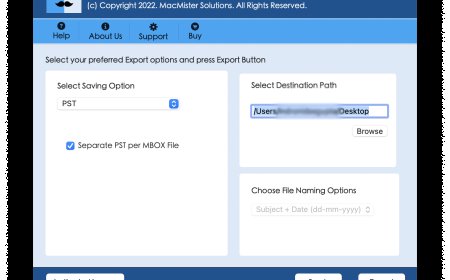Understanding Planetary Roles in Horary Questions
Discover how to interpret horary charts by understanding planetary roles in horary questions. Learn how each planet influences timing, outcomes, and decision-making in this easy guide to horary astrology.

Horary astrology is a fascinating and precise branch of astrology that answers specific questions using a chart cast for the moment the query is made. Unlike natal astrology, which focuses on a persons birth, horary looks at the planetary positions at the time a question is asked. One of the most critical elements in horary interpretation is understanding planetary roles in horary questions.
Each planet plays a specific role depending on the context of the question. Learning to analyze these roles is key to giving accurate and meaningful answers.
Lets break down how these planetary players influence horary readings and how you can begin to interpret them like a pro.
What Is Horary Astrology?
Before diving into the planetary roles, lets briefly understand what horary astrology is. Horary astrology provides answers to questions like:
-
"Will I get the job?"
-
"Is this relationship right for me?"
-
"Where are my lost keys?"
The astrologer casts a chart for the exact time the question is understood. That chart holds the answer.
If you're new to this concept, you can explore more about horary astrology and how it works.
The Importance of Planetary Roles in Horary
In horary astrology, planets are more than just symbolic bodies; they are active agents that describe the situation. Each planet represents people, actions, and energies involved in the question.
Your ability to interpret their role will determine how accurate your answer is.
Key Planetary Roles in Horary Questions
Lets explore the individual planetary influences and their typical roles in a horary context.
1. The Moon The Flow and Emotion
In horary charts, the Moon is often the most important planet. It acts as a co-significator for the querent (the person asking the question) and reveals how the situation will unfold.
-
It shows the flow of events.
-
It can indicate emotional involvement.
-
The aspects the Moon makes before leaving its sign (called Moons application) reveal the storys development.
2. The Sun Authority and Vital Force
The Sun usually represents power figures, fathers, or people of influence. In career-related questions, it might represent a boss or decision-maker.
Its placement and aspects can also indicate clarity, visibility, or exposure of hidden matters.
3. Mercury Communication and Intelligence
Mercury rules communication, information, and messages. In questions about contracts, negotiations, or technology, Mercurys condition is crucial.
If Mercury is retrograde, afflicted, or in a weak house, misunderstandings or delays can be expected.
4. Venus Love, Harmony, and Comfort
Venus governs relationships, beauty, and finances. In love or money-related horary questions, Venus often plays a starring role.
When strong and dignified, Venus brings harmony. When weakened or afflicted, it may bring complications, breakups, or overspending.
5. Mars Action and Conflict
Mars represents aggression, movement, and urgency. Its a double-edged sword: it can mean assertiveness or arguments, depending on the question.
In questions about conflict, surgery, or sports, Mars is key. Look at the house and sign its in to gauge whether it helps or hinders.
6. Jupiter Expansion and Blessings
Known as the greater benefic, Jupiter often brings optimism, luck, and growth. In legal or educational horary questions, Jupiter often shows up with influence.
When well-placed, Jupiter grants success. But if it's in detriment or afflicted, it can indicate overconfidence or unrealistic expectations.
7. Saturn Limits and Responsibility
Saturn is the planet of structure, restriction, and discipline. It brings long-term consequences and can delay or deny whats asked.
If Saturn is the significator in a question, the matter may proceed slowly or involve hardshipbut it can still bring solid outcomes with time and effort.
How to Identify Planetary Significators
In horary, every question involves a querent (the one asking) and often a quesited (the subject of the question). You assign significators to each based on the house rulers:
-
The 1st house ruler = the querent.
-
The house that rules the subject = the quesited.
Lets say youre asking, Will I get the job?
-
1st house ruler = you.
-
10th house ruler = job/employer.
Then look at the condition and interaction between these planets. Are they applying to aspect each other? Are they in mutual reception or strong dignity? These clues reveal the answer.
Dignity and Debility: The Planets Strength
Each planets role is affected by its dignity or debility. Dignity shows strength and integrity; debility indicates weakness or struggle.
Check if the planet is:
-
In rulership (e.g., Venus in Taurus)
-
In exaltation (e.g., Moon in Taurus)
-
In fall or detriment (e.g., Mars in Cancer)
A strong significator suggests success, while a weak one may warn of obstacles or failure.
Timing the Outcome
Another important aspect of understanding planetary roles in horary questions is timing. You can use planetary aspects and their degrees to estimate when an event might occur.
For example:
-
An aspect forming in 3 degrees may mean 3 days, weeks, or months.
-
Cardinal signs = fast.
-
Fixed signs = slow.
Final Thoughts: Practice Makes Perfect
Horary astrology is like learning a new language. The planets speak through their positions, aspects, and relationships. By understanding planetary roles in horary questions, you gain the tools to decode these messages accurately.
Keep practicing with real questions, use clear significators, and always consider the dignity and aspects of each planet. Over time, the stories in the chart will become clearer, and your accuracy will grow.


































